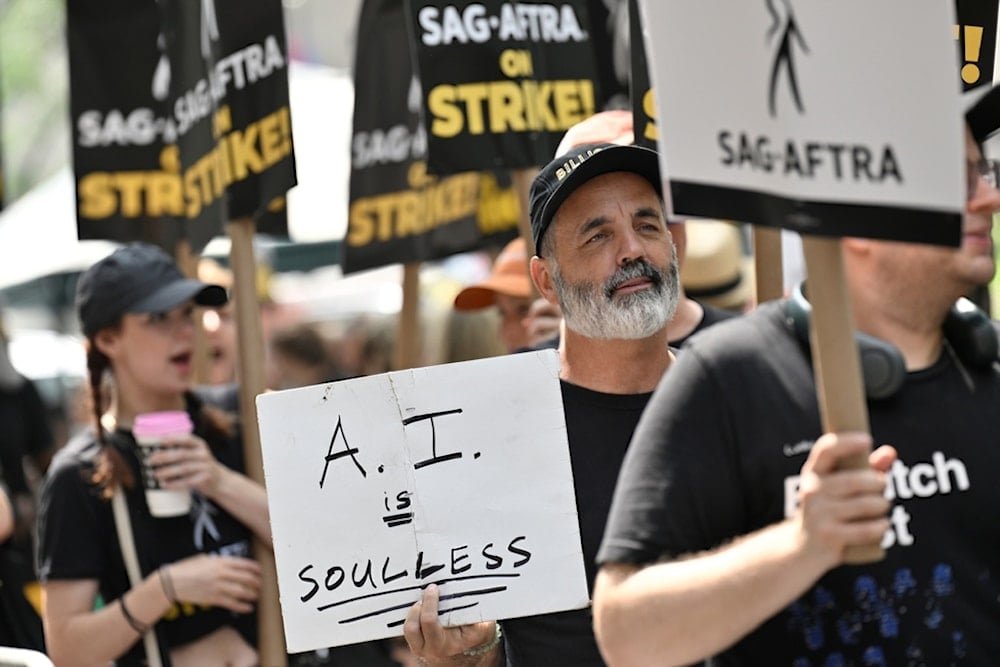Senate Democrats warn AI could replace 100 million US jobs: Axios
Axios reported that US Senate Democrats, led by Bernie Sanders, warn artificial intelligence could automate nearly 100 million American jobs within a decade, concentrating wealth among tech giants and eroding worker protections unless bold reforms like a robot tax and shorter workweek are enacted.
-

SAG-AFTRA picketers carry signs outside NBC in Rockefeller Center on July 17, 2023, in New York. (Photo by Evan Agostini/Invision/AP, File)
Axios on Monday reported that US Senate Democrats are warning of an unprecedented wave of job losses driven by artificial intelligence, with nearly 100 million US workers at risk of being replaced within the next decade.
The findings, drawn from a forthcoming report by the Senate Health, Education, Labor, and Pensions (HELP) Committee, suggest that AI and automation are rapidly evolving into a new form of "artificial labor" capable of transforming the economy in under ten years.
According to the committee's analysis, which utilized ChatGPT to model potential employment impacts, as many as 89% of fast food positions, 64% of accounting roles, and 47% of trucking jobs could disappear over the next decade. The report estimates that a total of 100 million jobs could be automated in that period.
Senator Bernie Sanders (I-Vt.), who chairs the committee, issued a sharp warning in a Fox News op-ed on Monday, saying, "Artificial intelligence and robotics being developed by these multi-billionaires today will allow corporate America to wipe out tens of millions of decent-paying jobs, cut labor costs and boost profits."
Concentrated power
The report argues that the AI revolution is less about innovation and more about concentrating power and wealth. It points to tech giants such as Amazon and Walmart, which have already reduced payrolls while expanding automation, as examples of how major corporations are deploying AI to lower expenses and increase output.
Democrats contend that the current trajectory of AI is accelerating inequality, allowing a small group of companies and executives to reap immense financial rewards while undermining job security for millions of workers.
Republicans, meanwhile, maintain that the US must remain the global leader in AI and caution that excessive regulation could hinder innovation and allow China to gain an edge.
Robot reckoning
The report also faults the Trump administration's approach to AI policy, accusing it of handing control to Silicon Valley and prioritizing deregulation over worker protections. Lawmakers claim that the Trump administration's executive orders weakened federal oversight and threatened to cut funds from states attempting to regulate AI, effectively granting corporations more freedom to automate.
To confront the looming disruption, Senate Democrats are proposing a suite of worker-centered policies, including a 32-hour workweek, profit-sharing requirements, and a "robot tax" aimed at ensuring that companies benefiting from automation also contribute to social welfare programs.
The report concludes that without meaningful reform, the rapid rise of AI could reshape the US economy to the detriment of labor, deepening existing inequalities and eroding the foundation of the middle class.

 3 Min Read
3 Min Read









